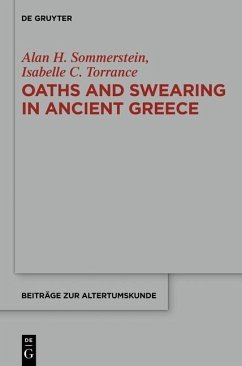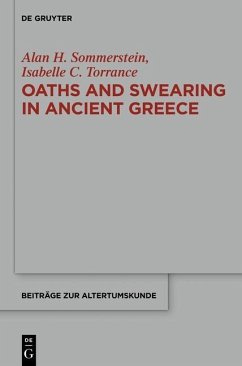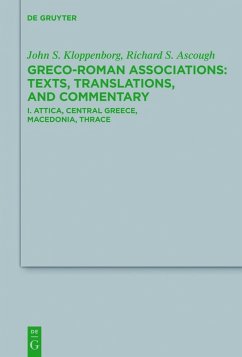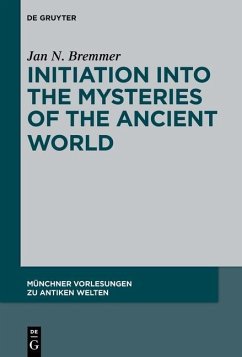
Oath and State in Ancient Greece (eBook, PDF)
Versandkostenfrei!
Sofort per Download lieferbar
90,95 €
inkl. MwSt.
Weitere Ausgaben:

PAYBACK Punkte
45 °P sammeln!
The oath was an institution of fundamental importance across a wide range of social interactions throughout the ancient Greek world, making a crucial contribution to social stability and harmony; yet there has been no comprehensive, dedicated scholarly study of the subject for over a century. This volume of a two-volume study explores how oaths functioned in the working of the Greek city-state (polis) and in relations between different states as well as between Greeks and non-Greeks.
Dieser Download kann aus rechtlichen Gründen nur mit Rechnungsadresse in A, B, BG, CY, CZ, D, DK, EW, E, FIN, F, GR, HR, H, IRL, I, LT, L, LR, M, NL, PL, P, R, S, SLO, SK ausgeliefert werden.













